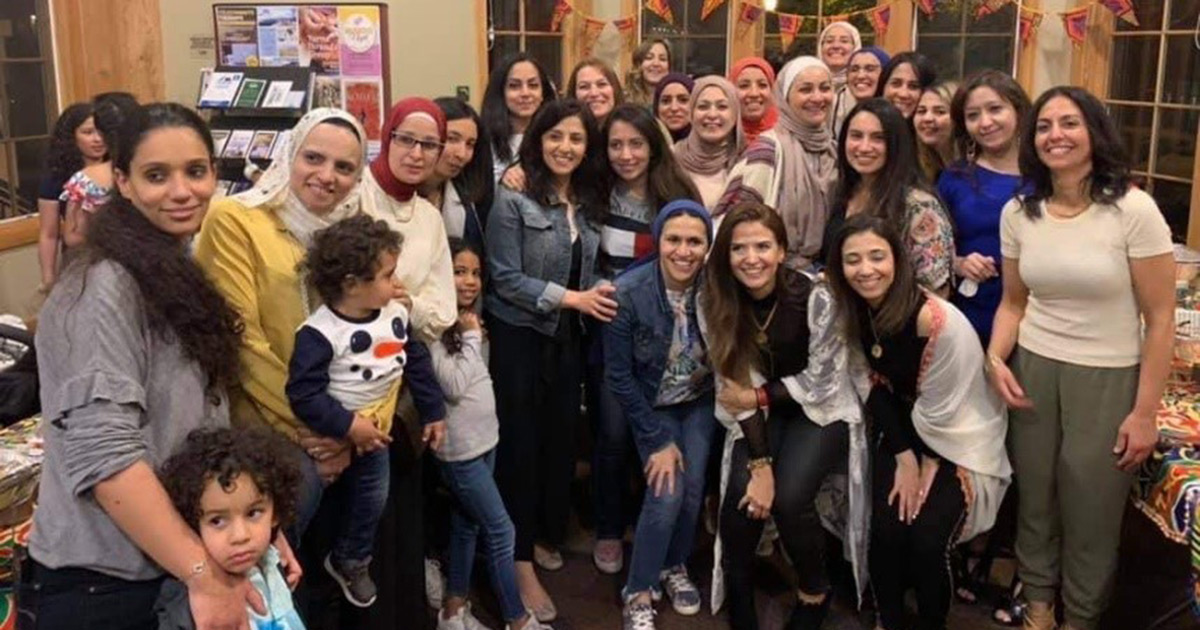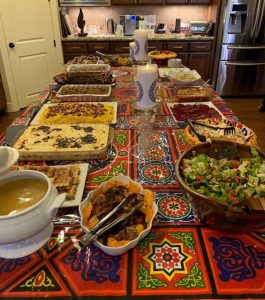
New moon, new month, new beginnings. This month, the moon will be born on Friday, April 24, marking the first day of the holy month of Ramadan, year 1441 in the Muslim lunar calendar.
“Oh, you who believe, fasting has been prescribed upon you, as it has been prescribed upon those who came before you, so that you might attain piety/God consciousness.”
– Qur’an [2:183]
God honored this month with this 30-day fast because He chose it to reveal the final testament – the Qur’an – to Prophet Muhammad through Gabriel, affirming and completing the message of prophets and messengers preceding him, in the Abrahamic lineage.
Able-bodied Muslims fast from dawn to sunset, abstaining physically from all food and drink and spiritually from ill-talk, unfavorable actions, and impure intentions. Instead, their souls are to be soaked with acts of worship: prayers, charity giving, community building, etc. The true challenge in fasting during Ramadan is the spiritual aspect: the struggle against oneself to maintain patience, despite life’s misfortunes. Children, pregnant, nursing, and menstruating women, the elderly, travelers, or those with chronic health conditions cannot fast.
Ramadan’s spiritual goals align with Pope Francis’ call in his Ash Wednesday speech to give up internet trolling for Lent this year:
“[It] is a time to give up useless words, gossip, rumors, tittle-tattle, and speak to God on a first name basis…We live in an atmosphere polluted by too much verbal violence, too many offensive and harmful words, which are amplified by the internet. Today, people insult each other as if they were saying ‘Good Day.'”
Iftar, breaking fast at sunset, is quite a solemn moment. The chatter of an “iftar party” is drowned by the observer’s connected state of being to God, as he or she make a short supplication while breaking fast (typically on a date or a sip of water). It is a profound moment of appreciation for not only having the means and food to break one’s fast, but also the ability to voluntarily hold a fast. The fact that so many people around the world are already in a constant state of hunger, do not have the religious freedom to fast, or aren’t blessed with good health to observe it, is not lost on many Muslims. In many ways, it is also a practical lesson in counting one’s blessings and not taking things for granted.
Muslims account for 1.9 billion of the world’s population. They are a rainbow of races and ethnicities. And hence Ramadan’s cultural traditions and foods can look different. This diversity is also reflected in our Issaquah Highlands microcosm.
Wishing you and yours a blessed Ramadan.
“Ramadan Mubarak!”
Photo (top): An iftar dinner party at Blakely Hall in 2019. Photos provided by Nada Alwarid.






